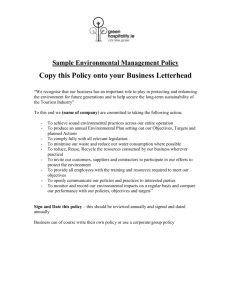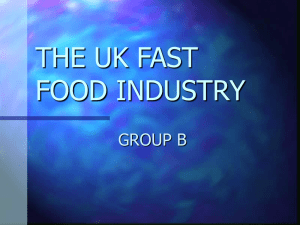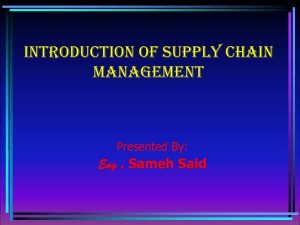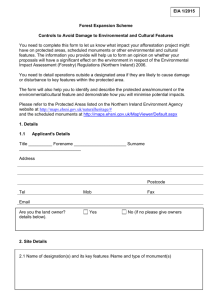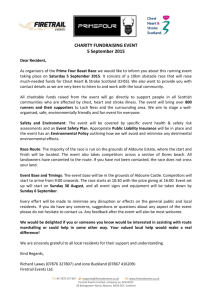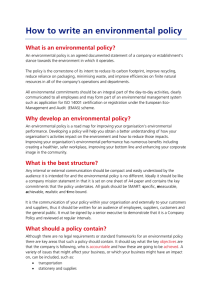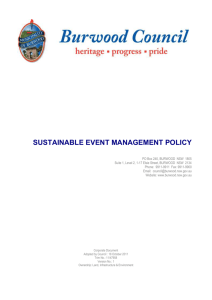imperial college london sustainable catering policy
advertisement
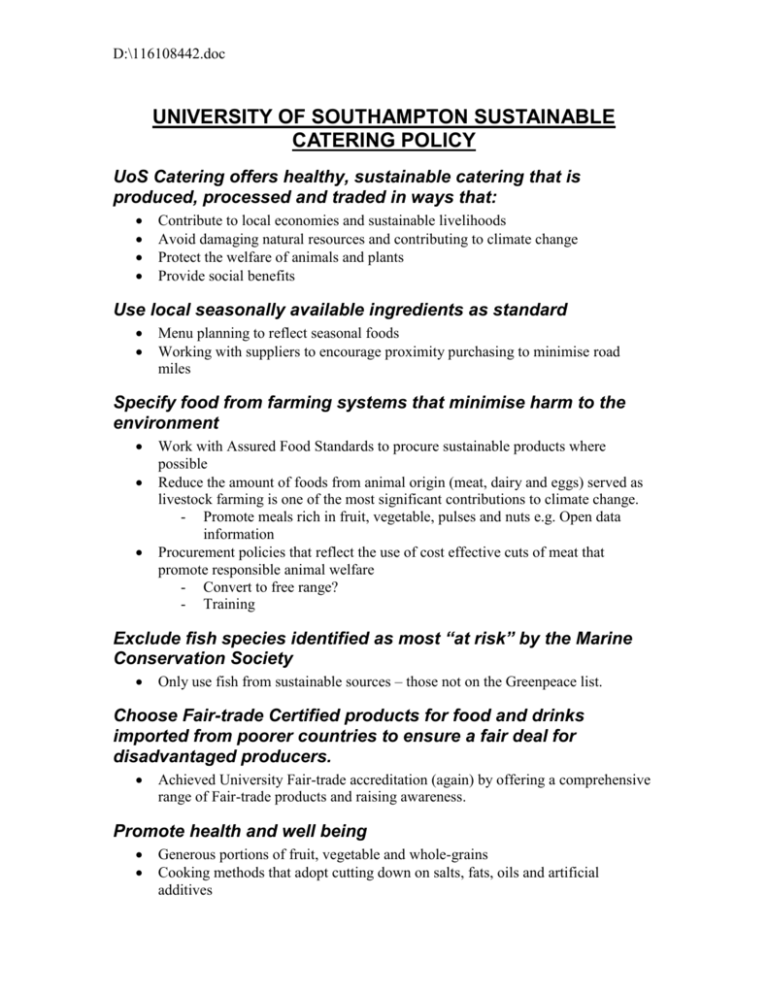
D:\116108442.doc UNIVERSITY OF SOUTHAMPTON SUSTAINABLE CATERING POLICY UoS Catering offers healthy, sustainable catering that is produced, processed and traded in ways that: Contribute to local economies and sustainable livelihoods Avoid damaging natural resources and contributing to climate change Protect the welfare of animals and plants Provide social benefits Use local seasonally available ingredients as standard Menu planning to reflect seasonal foods Working with suppliers to encourage proximity purchasing to minimise road miles Specify food from farming systems that minimise harm to the environment Work with Assured Food Standards to procure sustainable products where possible Reduce the amount of foods from animal origin (meat, dairy and eggs) served as livestock farming is one of the most significant contributions to climate change. - Promote meals rich in fruit, vegetable, pulses and nuts e.g. Open data information Procurement policies that reflect the use of cost effective cuts of meat that promote responsible animal welfare - Convert to free range? - Training Exclude fish species identified as most “at risk” by the Marine Conservation Society Only use fish from sustainable sources – those not on the Greenpeace list. Choose Fair-trade Certified products for food and drinks imported from poorer countries to ensure a fair deal for disadvantaged producers. Achieved University Fair-trade accreditation (again) by offering a comprehensive range of Fair-trade products and raising awareness. Promote health and well being Generous portions of fruit, vegetable and whole-grains Cooking methods that adopt cutting down on salts, fats, oils and artificial additives D:\116108442.doc Remove hydrogenated vegetable oils from the business Healthy “meal deals” Promote brain food initiatives Incorporate into the face book marketing calendar e.g. Healthy Living Week Promote initiatives that encourage filtered tap water in reusable jugs or bottles E.g. Terrace Recycle Initiatives Suppliers tasked to only deliver in minimal packaging (e.g. without lids) Explore reusable packaging (e.g. crates) Procure 50% recyclable disposables Recycle bins in outlets to encourage customers to separate different materials for recycling Using our own “mug” and possibly “salad bowl” initiative Introduce a food waste composting system into the main kitchen Minimal print, menus and other marketing material to be via face book Water Usage When replacing equipment, purchase water saving pieces Working with suppliers to improve the efficiency of water during production Internal awareness campaigns Staff training Minimise energy use in food production, transportation and storage Energy efficient equipment Internal awareness campaigns Staff training Reduction of suppliers / multi-temperature vehicles Work with delivery companies and suppliers to minimise transportation costs Sensible route planning
